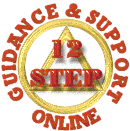The Challenges of Mothers in Sobriety

Women who struggle with addiction and are pregnant or mothers face some of the most daunting challenges in the population of substance abusers. The typical problems of addiction present themselves -- ruined relationships, jail time, financial troubles, bad physical and mental health -- and then include the fears of physically harming a child during pregnancy with either drug use or methadone to manage opioid addiction, an inability to breastfeed with drugs in the milk supply, fears of having a child removed from custody, and paralyzing guilt at how addiction has harmed the child.
Women in recovery who are not mothers have already been shown to do better when in a women-focused support system. There are differences in how women recover, such as withdrawal possibly being more intense for women. Research specifically focused on women in sobriety has been lacking and is being advocated for in order to support empirical evidence that could help women get and stay sober. For example, research has shown that the nicotine patch is less effective for women than men. In the past, women were not even included in federal studies on addiction.
When women recover together, sex-specific issues can be naturally and purposefully included in the program, and this is true for mothers, as well. Women who enter into sobriety while pregnant might have to cope with withdrawal symptoms, intense guilt, and the possibility that their unborn child has birth defects or health problems as a result of drugs or alcohol. Programs for pregnant mothers in recovery focus on providing any drug treatment necessary, therapy, food, and housing. Churches or state run therapeutic groups can referral a woman in this position to the programs in their state.
A mother moving into sobriety with a baby or young child(ren) will need comprehensive support in order to maintain her own sobriety while managing the stressors of not only normal parenting, but any emotional damage done during her active addiction. Groups like Alateen can be helpful, as is individual and family therapy with an addiction specialist. It’s worth the time to ask an addiction therapist if they offer a sliding scale or do any pro-bono work -- many do, and if there is not a current spot for you, waiting lists are often available.
A mother might not reach out for help with her addiction out of fear that she will lose custody of her child if she admits there is a problem. Anonymous programs such as Alcoholics Anonymous can be a good beginning step for a woman in this position. Every state has different laws as far as child custody and addiction, and each judge can interpret differently, so using Google to research the specifics in a state is a solid way to understand how to approach telling the family about sobriety. An addiction therapist could be helpful here, too, guiding a woman through the language to use, approach to take, and timing of the discussions necessary.
If a mother is in a rehabilitation recovery center, she can utilize the supports built-in -- the therapist, group, and case manager are all possible resources for guidance and support through the process of managing custody.
Building a strong community of support is the most important factor for a mother in long-term sobriety. This community can be program-based, such as the long-term treatment group run by the addiction recovery center used for initial sobriety, or Alcoholics Anonymous, or spiritually based, such as a local church group, or simply gender-based, in a group of women with children who meet and are committed to supporting each other’s sobriety and lives.
It is this community that can be the difference between relapse or not. Feeling isolated or not understood when in crisis can lead to bad decisions, and having a network of support from other mothers who intimately know the challenges of staying sober while raising children (children who might be angry and sad about their mother’s past addictive behavior) can offer empathy, ideas for specific issues that crop up, and a lack of guilt or shaming during the process. Guilt and shame are powerful triggers for relapse and unhealthy emotional patterns, and receiving help and support without those elements is crucial for maintaining sobriety.
Community also builds networks of resources, both actual and referred. In a tough spot, a mother in a community can often find someone in that group who can help or has a referral to a person or agency who can help. Community also provides mothers in sobriety with the chance to help the other women in the group, a powerful way to heal self-esteem and remember that we all have something to offer.

